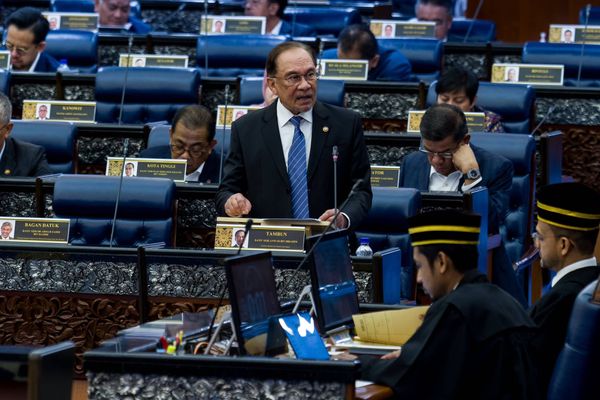By Danial Dzulkifly
KUALA LUMPUR, May 5 — The federal government has announced a massive support package of RM1.5 billion as part of a strategy to cushion local businesses from the impact of sweeping United States tariffs.
Speaking at a special parliamentary sitting, Prime Minister Datuk Seri Anwar Ibrahim said RM1 billion will go towards raising government guarantees under the Business Financing Guarantee Scheme.
Another RM500 million will be channeled through development financial institutions to assist affected businesses.
The initiative is part of six key strategies to ensure economic stability, including by strengthening global trade ties, assisting local exporters, and expediting projects to stimulate domestic activity.
“These efforts serve a dual purpose: stimulating short-term investment activities while strengthening Malaysia’s long-term economic competitiveness amid global uncertainty.
“...No core national policies, such as Bumiputera rights, local vendor requirements, or the protection of strategic sectors, will be compromised in negotiations. Any review of non-tariff barriers will only involve outdated regulations, and all policy changes will be implemented in a transparent and inclusive manner,” he told the Dewan Rakyat today.
A central component of the strategy is a data-driven monitoring platform under the National Geo-economic Coordination Council, which will track indicators such as manufacturing orders, export volumes, retail sales, layoffs and loan growth to allow timely policy responses.
Anwar also announced a RM50 million allocation for the Malaysia External Trade Development Corporation to help local businesses explore new markets through international expos and business-matching.
Another major initiative is the Malaysia Aviation Group’s planned purchase of 30 Boeing aircraft, with an option for 30 more, which is set to boost tourism and strengthen Malaysia’s economic ties with Washington.
Anwar assured that Malaysia will continue bilateral negotiations with the US on reciprocal tariffs, adding that the country is looking to diversify trade ties beyond traditional partners, with new markets being explored in Europe, the Middle East, Central Asia and South America.
Closer regional collaboration through Asean initiatives, such as the Asean Power Grid and cross-border infrastructure projects, is also a focus, he said.
These projects include the Johor-Singapore Special Economic Zone, new connectivity efforts with Thailand and Indonesia, and infrastructure upgrades under the Northern Corridor Economic Region.
Additionally, Anwar said RM1 billion will be allocated to upgrade border facilities in Sarawak and Sabah to boost trade with Indonesia.
Malaysia has also concluded negotiations for a Malaysia-European Free Trade Association deal, set to be signed next month. Talks to revive free trade agreements with South Korea and the European Union are ongoing.
Meanwhile, Anwar said rising interest from international talent in artificial intelligence and science to relocate to Malaysia reflects growing global confidence in the country.
He added that to stimulate domestic activity, Putrajaya will fast-track the rollout of approved projects, particularly in flood mitigation, school repairs and clinic construction. Procurement thresholds will be raised from RM1 million to RM3 million for quotations, and from RM100,000 to RM200,000 for balloted contracts, to expedite delivery, he said.
Furthermore, the Invest Malaysia Facilitation Centre will be expanded to Penang and Sarawak to expedite investment realisation, alongside existing centres in Kuala Lumpur and Forest City in Johor.




